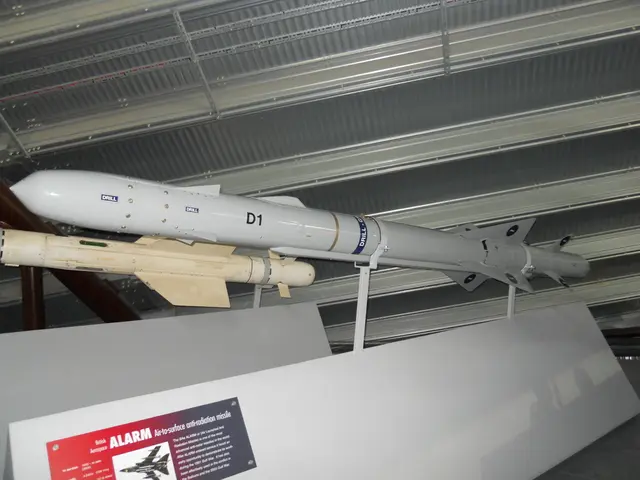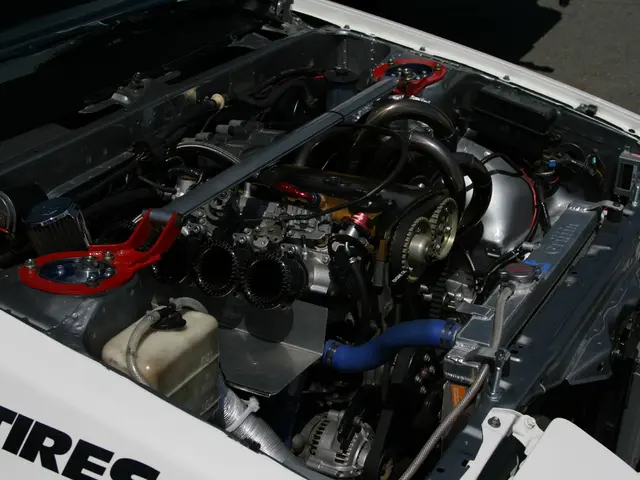U.S. Restrictions on AI-chip Exports Create Advantage for China
Nvidia in the Chinese AI Chip Market: An Ongoing Tussle
The Chinese AI chip market is heating up, with Nvidia facing some harsh competition from homegrown companies like Huawei and Cambricon. In a chat with Counterpoint Research's Deputy Director Brady Wang, he pointed out that these local players have a significant advantage - local incentives and opportunities to excel.
Doug O'Loughlin, an analyst at Semiconductor Consulting Firm SemiAnalysis, backs this up, noting that Huawei's Ascend chips are quickly gaining traction in China, thanks to constraints on Nvidia's H20 graphics processors.
However, the road isn't entirely smooth for Huawei. Analysts warn that the company is struggling to scale production, with U.S. export controls preventing them from using TSMC factories in the same volumes as Nvidia. This push-and-pull leads Chinese chipmakers to turn more frequently to domestic SMIC, which faces similar challenges with export controls and limited access to cutting-edge equipment.
These U.S. export restrictions on Nvidia chips to China have been in place since 2022, with the government opposing the supply of powerful chips to Chinese companies. Nvidia responded by introducing H800 chips designed for China, only to see them banned in 2023. The company then offered Chinese companies H20 chips with lower performance. Unfortunately, these processors were restricted for export in April 2023 by the Trump administration, potentially causing Nvidia a hefty $5.5 billion in quarterly losses.
As of 2024, Nvidia's revenue from H20 sales to China was estimated to be around $12-15 billion, making China the company's fourth-largest market, after the U.S., Singapore, and Taiwan. In January 2024, the Financial Times reported that Huawei aims to boost its share of the AI chip market in China.
Join us on Telegram for more updates on the AI chip market @expert_mag
Insight:Nvidia still holds a considerable position in the global AI chip market, including China. However, U.S. export restrictions have affected its ability to sell high-end AI chips, essential for cutting-edge AI applications. This has paved the way for local Chinese companies like Huawei and Cambricon to grow and compete domestically. Huawei, as a major Chinese technology firm, is working on its indigenous AI chip solutions, such as the Ascend series, to reduce dependence on foreign suppliers. Cambricon Technologies, another key player, is developing local AI chip solutions to compete with international offerings. The U.S. export restrictions have sparked a rapid development and adoption of homegrown AI chip technologies in China, with local companies receiving significant governmental support to reduce dependence on foreign chips. Despite the challenges, these local companies are making strides and could potentially compete internationally in the future.
- The AI chip market in China is witnessing growth as local players like Huawei and Cambricon challenge globally recognized brands such as Nvidia, raising the question of whether domestic technology can compete with established industries like finance and business, and even impact the future of cutting-edge technology like artificial intelligence.
- As U.S. export restrictions on Nvidia chips to China continue, local Chinese companies have embraced the challenge, developing their own AI chip solutions with significant governmental support and local incentives, showcasing an interesting shift in the global finance and technology landscape.
- The emergence of homegrown AI chip technologies, particularly from Huawei and Cambricon, is not only shaking the Chinese market but could potentially redefine the global AI landscape, demonstrating that the financial support and business environment can fuel technological advancements, even in the face of international trade limitations.








